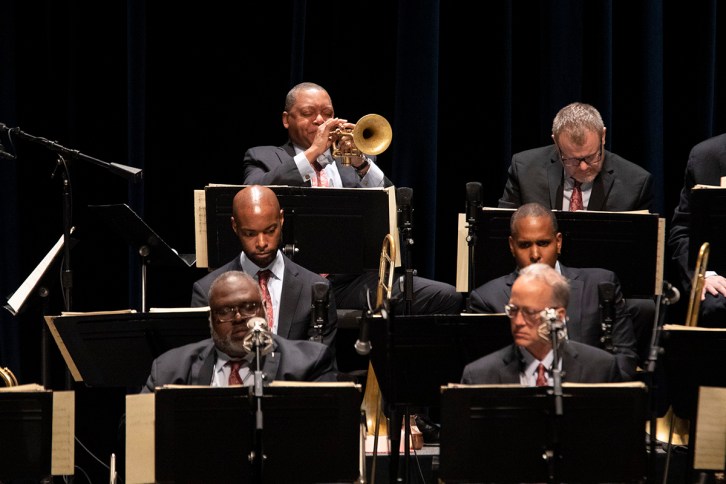Pano: Swing Time in Santa Barbara
What Is HIP?

This edition of Pano was originally emailed to subscribers on February 9, 2022. To receive Charles Donelan’s arts newsletter in your inbox each Wednesday, sign up at independent.com/newsletters.
The first week in February of 2022 should go down in Santa Barbara’s music history for several reasons. Thursday, February 3, marked the return of Joshua Bell to The Granada Theatre for an electrifying recital presented by UCSB Arts & Lectures. The next night, Friday, February 4, A&L brought down the same house with the first live performance by Wynton Marsalis and the Jazz at Lincoln Center Orchestra (JLCO) here since September 2018. One would almost think that things were back to normal, and in many ways, they were. Bell and Dugan were outstanding, as usual, and Marsalis and company were as brilliant as ever — which is very, very brilliant.

A big part of the thrill of hearing these musicians live was the sense of collective purpose generated by an enthusiastic audience. Sharing music has never seemed so precious, and the gratitude that filled the theater was palpable both nights.
A second aspect of the experience that mingled with and reinforced the first came from the depth of history possessed by the musicians onstage. On Thursday afternoon, as I was preparing to leave for the Bell and Dugan recital, a commentary column by the L.A. Times critic Mark Swed popped up on my computer screen titled “The Duke Dilemma: Symphonic Ellington” is a mainstay — but still in need of revival. Intrigued by the pataphysical notion of a new initiative taken for which there remains a crying need, I read on.
Although he was impressed by a recent concert of Duke Ellington’s music by the Los Angeles Philharmonic, Swed went on to analyze the various ways in which the legacy of Ellington’s immense output has not necessarily been well-served by either the classical or the jazz worlds. As a society, we keep his best tunes in constant rotation, but according to Swed’s account, “we still don’t know what to do with Ellington” beyond that.
The crux of the matter turns on a concept that enjoys significant currency in classical music circles today — the idea of “historically informed performance,” or HIP. What is HIP? It’s a way of playing music that incorporates our least nostalgic understanding of what it has meant and continues to mean. What is not HIP? Period instruments employed for their own sake or any other simplistic solution to the demands of musical history.
Arriving at the Granada on Thursday with this fine essay in the back of my mind, I couldn’t help noticing that Joshua Bell and Peter Dugan sounded very HIP to me. Yet when I shared a ride home after the show with an esteemed colleague, he let me know that, in his opinion, Bell’s Bach was not HIP!

Entering the theater again the next night, I was more aware than ever of how the idea of period authenticity has come to command such significance in critical discourse. And that’s when I encountered a performance that blew away the cobwebs and ripped up the rules about what is, and what is not, HIP, or hip, for that matter. Wynton Marsalis has honed the JLCO into an epic big band, capable of creating improvisational magic as consistently as any group in the world. On this tour, they play arrangements contributed by different members over the decades and program them in sets determined mainly by democratic means. While sounding nothing like the great Ellington orchestras, the JLCO nevertheless incarnates the essential spirit of what Ellington created — a harmonious society that values individuals for their unique contributions to the whole. And if that ain’t HIP, I don’t know what is.
Support the Santa Barbara Independent through a long-term or a single contribution.




You must be logged in to post a comment.